IRGC Commander Says Waging War On US To Avenge Soleimani ‘Not Logical’
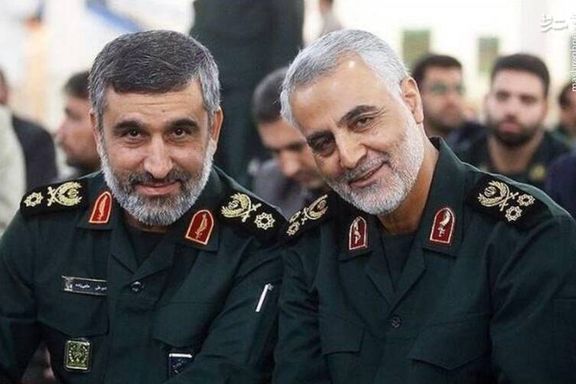
Amir Ali Hajizadeh, the IRGC aerospace commander, said that Iran decided not to wage a war to avenge the US killing of Qassem Soleimani because “it was not logical.”

Amir Ali Hajizadeh, the IRGC aerospace commander, said that Iran decided not to wage a war to avenge the US killing of Qassem Soleimani because “it was not logical.”
A short video released by Etemadonline, an Iranian daily, shows the IRGC commander saying that a war with the US at that point could have inflicted heavy casualties on Iran, killing 10-15,000 civilians and soldiers. It would also see Iran regress for 10 to 20 years, he added.
According to Hajizadeh, the Iranian officials noted at that time that having a full-scale confrontation with the US would not be conducive to “desired results.”
This is while Tehran previously claimed that Washington called for immediate deescalation after its airstrike which claimed the life of Soleimani.
Soleimani, the Iranian regime’s top military and intelligence operator in the Middle East, was killed in a US drone strike in January 2020 in Iraq’s capital, Baghdad. He oversaw the regime’s proxies in the region.
Washington justified the action by saying that Soleimani was actively planning attacks against American diplomats and military personnel in Iraq and the broader region.
Iranian leaders have often vowed to avenge Soleimani including threatening the assassination of former US President Donald Trump, who gave the green light for the commander's death.
Speaking on the occasion of the third anniversary of Soleimani’s killing, Iranian Foreign Minister Hossein Amir-Abdollahian also said that nearly 60 US officials were blacklisted by Tehran for their involvement in the assassination of Tehran’s top commander.
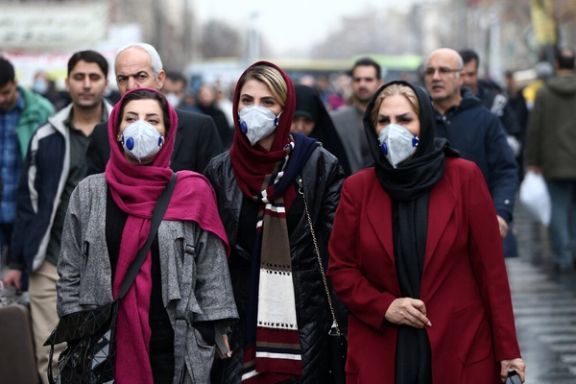
Iran's leading economic daily, Donyaye Eqtesad, has revealed a huge gender gap in the Iranian labor market with unemployment among women double that of men.
The report not only points out the glaring gender disparity but also highlights the absence of a clear policy to harness the economic potential of women in Iran.
Despite women's significant contributions to the nation's economy, the report suggests that their abilities are not fully utilized. It emphasizes that reducing women's unemployment rates and increasing their workforce participation could have a positive impact on reducing poverty at the household level.
According to the latest findings from the Iran Statistical Center regarding labor market developments this year, women's participation rate has reached 14.6%. However, it is concerning that out of over 32 million women of working age, more than 27.5 million remain inactive and are not part of the workforce, limiting their economic opportunities.
The report also reveals that women's labor force participation in Iran lags behind that of some neighboring countries, such as Saudi Arabia, where it has doubled from 15% in 1990 to 30% in 2020 over a 30-year period.
The findings are consistent with the United Nations Human Development Report for 2020 and 2021, which showed Iran ranked at 115 out of 191 countries in terms of gender inequality.
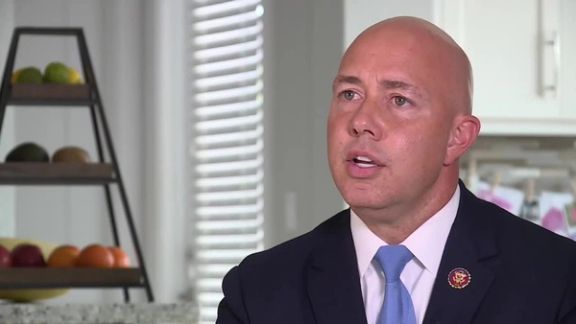
Brian Mast, a Republican member of the US Congress, called for transparency regarding the case of Robert Malley, the suspended US special envoy for Iran.
In an interview with One America News Network, Mast criticized the US government for not shedding light on the events that led to Malley’s suspension, noting that he was “quietly” removed from his position earlier this year.
Iran International broke the news in late June that Malley’s security clearance had been revoked and he was no longer acting as US envoy, but the State Department has remained tight-lipped about the details of the case. Critics of the administration and US lawmakers have demanded answers, but so far the administration has refused to provide details.
Mast stressed that the US government did not notify the Congress about revoking Malley’s security clearance, adding that the affair was discovered “by accident.”
He called Malley “an Iranian sympathizer working to be soft on Iran” and pointed that Malley championed Washington’s adoption of “soft policies” towards a state which urges the destruction of the United States and Israel.
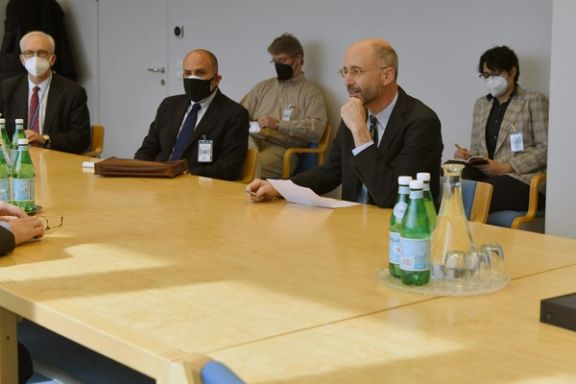
The congressman also referred to the case of Ariane Tabatabai, a former associate of Malley and the current Chief of Staff for the Assistant Secretary of Defense, who has had close ties with the Iranian regime.
Tabatabai was alleged to be part of a network that tried “to gain influence to top US diplomats and convince them to be soft on Iran,” Mast went on to say.
Iran International’s exposé, Inside Tehran’s Soft War: How Iran Gained Influence in US Policy Centers, and its twin report by Semafor, Inside Iran’s Influence Operation, prove the existence of the “Iran Experts Network”, whereby members acted as agent provocateurs of the regime.
Mast pointed out that according to the information revealed, Tabatabai “was directly reporting to the Iranian foreign ministry.”
He added that in order to obtain a security clearance, one is needed to disclose all their ties with foreign countries.
There is still no information whether Tabatabai has informed the authorities about her interactions with the Iranian government, Mast stated.
He further called Iran’s influence campaign “a serious problem” and urged the Biden administration to address it with transparency.
Mast, a member of the House Foreign Affairs Committee, also accused Tehran of having a hand in Hamas October 7 deadly attack on Israel, which claimed the lives of 1,400 mostly civilians and left thousands injured in the single most deadly day for Jews since the Holocaust.
Mast’s remarks came four weeks after top US Republicans at the Senate and the House opened dual probes into Malley's links to the secret Iranian influence network.
At the same time, House Committee on Oversight and Accountability Chairman James Comer (R-KY) and Subcommittee on National Security, the Border, and Foreign Affairs Chairman Glenn Grothman (R-WI) also raised concerns about the Administration’s use of officials with sympathetic ties to the Iranian regime to negotiate with Tehran.
Also on October 24, America First Legal, a group of conservative lawyers, announced that it had launched a probe into the activities of a pro-Iran influence network in the United States which can pose a threat to the American national security.
"It is of paramount importance that the truth about the role that Iranian assets may have played, and may continue to be playing, in formulating US policy be brought to light," said Reed Rubinstein, the group’s senior counselor.
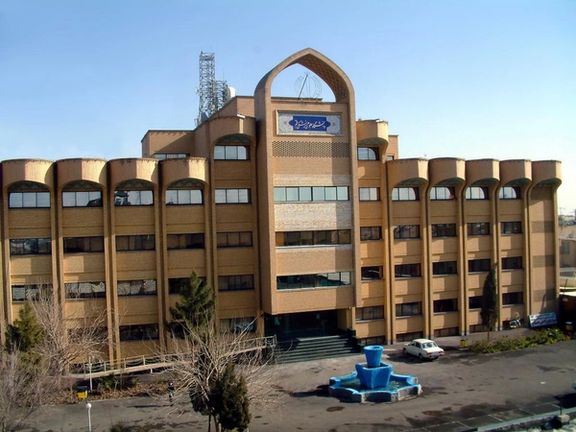
Iran's Qom University of Medical Sciences has imposed disciplinary sentences on a group of students for their involvement in a mixed-gender party.
Mehran Lachini, the secretary of the university's disciplinary committee, said that the actions were taken in response to “strong protests from fellow students and concerns about the promotion of immorality and lawlessness on social media.”
Amidst heightened security measures at campuses and increased scrutiny of students' belongings, Lachini further stated, "After conducting interviews and allowing the accused to present their defenses, the university's disciplinary committee decided to suspend the individuals from their studies for a duration ranging from one to four semesters." However, the identities and exact number of students involved were not specified in the report.
The move comes against the backdrop of growing pressure on students and reports of summoning and suspensions related to clothing, stemming from last year's nationwide protests following the death in morality police custody of Mahsa Amini.
Iranian universities have been witnessing increased unrest, exacerbated by the death of the 22-year-old Iranian Kurd whose death triggered the worst civil unrest in decades, led by students across Iran.
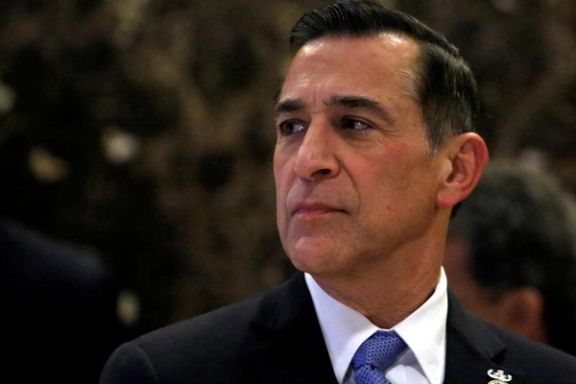
Darrell Issa, a Republican member of the House of Representatives, said that Iran is behind the rising antisemitic incidents in the United States and on the global stage.
Speaking during a House Judiciary Committee hearing held to receive the testimonies of Jewish college students about their experiences of abuse, Issa stated that Tehran funds antisemitic acts in American colleges as it funded the 10,000 rockets that the terrorists used to target Israel.
“We need to fully fund investigations into the funding that goes to antisemitism,” he stressed.
Issa called Iran “virtually the sole funder of attempts to destabilize Israel” and added that Iran is not only antisemitic but wants to destroy the state of Israel.
The hearing was interrupted by pro-Palestinian protesters who called for immediate ceasefire in the region and accused Israel of apartheid and genocide in its treatment of Palestinians.
In reference to the pro-Palestinian protesters who disrupted the meeting, Issa warned that they are inadvertently “playing into the hands of Iran.”
In a post on X after the hearing, the Republican house representative also stressed that the ways Iran provokes hatred towards Jewish Americans must be identified and stopped.
Since Hamas’ deadly onslaught on Israel on October 7, multiple countries in the world have witnessed an alarming rate of antisemitic incidents.
On October 29, a group of angry protesters attacked Makhachkala airport in Russia’s mostly Muslim region of Dagestan in an attempt to find the Jewish passengers of a flight that had recently landed from Israel. The attempt failed upon the intervention of security forces.
Antisemitic attacks have also been reported in many European countries including France and Germany, which have beefed up security measures to protect their Jewish communities.
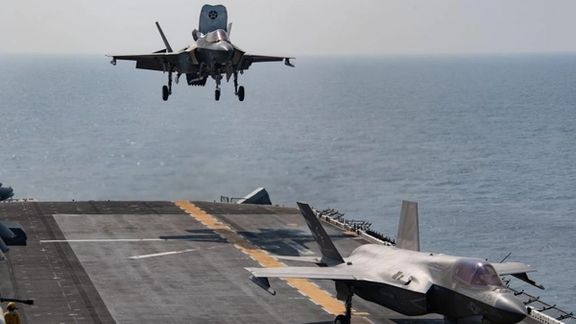
After more than 40 attacks on US forces by Iran-backed militants, two US F-15 fighter jets struck a weapons storage facility in eastern Syria used by the IRGC.
The operation took place in early hours of Thursday local time. The Pentagon called it a response to attacks on American forces in Iraq and Syria.
US Central Command issued a brief statement on X, saying it will take “all necessary measures” to defend Americans against “those who are responsible for the attacks and will respond at a time and place of our choosing.”
One day earlier, the Pentagon confirmed that militants backed by the regime in Iran had again attacked bases hosting American troops.
Announcing the airstrike Wednesday evening (US time), Defense Secretary Lloyd Austin said "the President has no higher priority than the safety of US personnel, and he directed today's action to make clear that the United States will defend itself, its personnel, and its interests."
However, the nature of the US retaliatory attacks have been limited to one or two targets and has so far failed to deter Iran and its proxies. Critics have been demanding a more robust response. They say Biden's lenient approach towards the Islamic Republic has emboldened not just the regime but its proxies in the region. Armed militant groups backed (and often guided) by the Islamic Republic are targeting US troops almost daily.
“If you want to strangle Iran, you cut off their oil,” said Republican Senator John Kennedy on Monday. “The Biden admin is choosing not to do that, and now they wonder why Iran’s proxies thought they could get away with attacking Israel and, by extension, America.”
Earlier in the week, reports emerged that the Biden administration had warned Iran and Hezbollah via Turkey that the US will intervene immediately if they attack Israel.
"The United States is fully prepared to take further necessary measures to protect our people and our facilities,” said Austin Wednesday evening, reiterating the warning to Iran and its proxies in the region, “We urge against any escalation."
CNN quoted a senior military official that the targeted facility had been utilized in several attacks against US troops in recent weeks.
"We've been watching it for a bit to ensure that when we struck the target, we would be able to eliminate the use of the facility to the IRGC," the official said.
There have been unconfirmed reports in Syrian state media that several members of the IRGC have been killed and injured in the airstrike. Media in Iran was mostly silent about the attack on Thursday morning, but highlighted Hezbollah capabilities in threatening the US Navy in the Mediterranean.
This marks the second occasion in recent weeks that the US has targeted facilities linked to Iranian-backed groups in Iraq and Syria.
The recent strike can be read as a message to the Islamic Republic, holding it accountable for the attacks on US forces by its proxies.
Coinciding with the US airstrike, Houthis in Yemen downed an unmanned American MQ-9 Reaper drone. The Houthis have officially entered the war in support of Hamas.
Iranian officials have been threatening for weeks that the Israel war on Hamas would trigger a wider, regional war involving actors that are mostly backed by the Islamic Republic.
Amid growing fears of a full blown war, AP is reporting that negotiations are underway for a three-day humanitarian ceasefire in Gaza in exchange for the release of “about a dozen hostages held by Hamas.”
One Egyptian official has told AP that the details of the deal were discussed earlier this week in Cairo with the CIA chief and Israeli officials.
A ceasefire would crucial to get aid into Gaza, where 2.3 million Palestinians are trapped in increasingly worrying circumstances.
On Wednesday, the World Health Organization warned of disease spreading in Gaza.
“As deaths and injuries in Gaza continue to rise due to intensified hostilities, intense overcrowding and disrupted health, water, and sanitation systems pose an added danger: the rapid spread of infectious diseases,” WHO said.